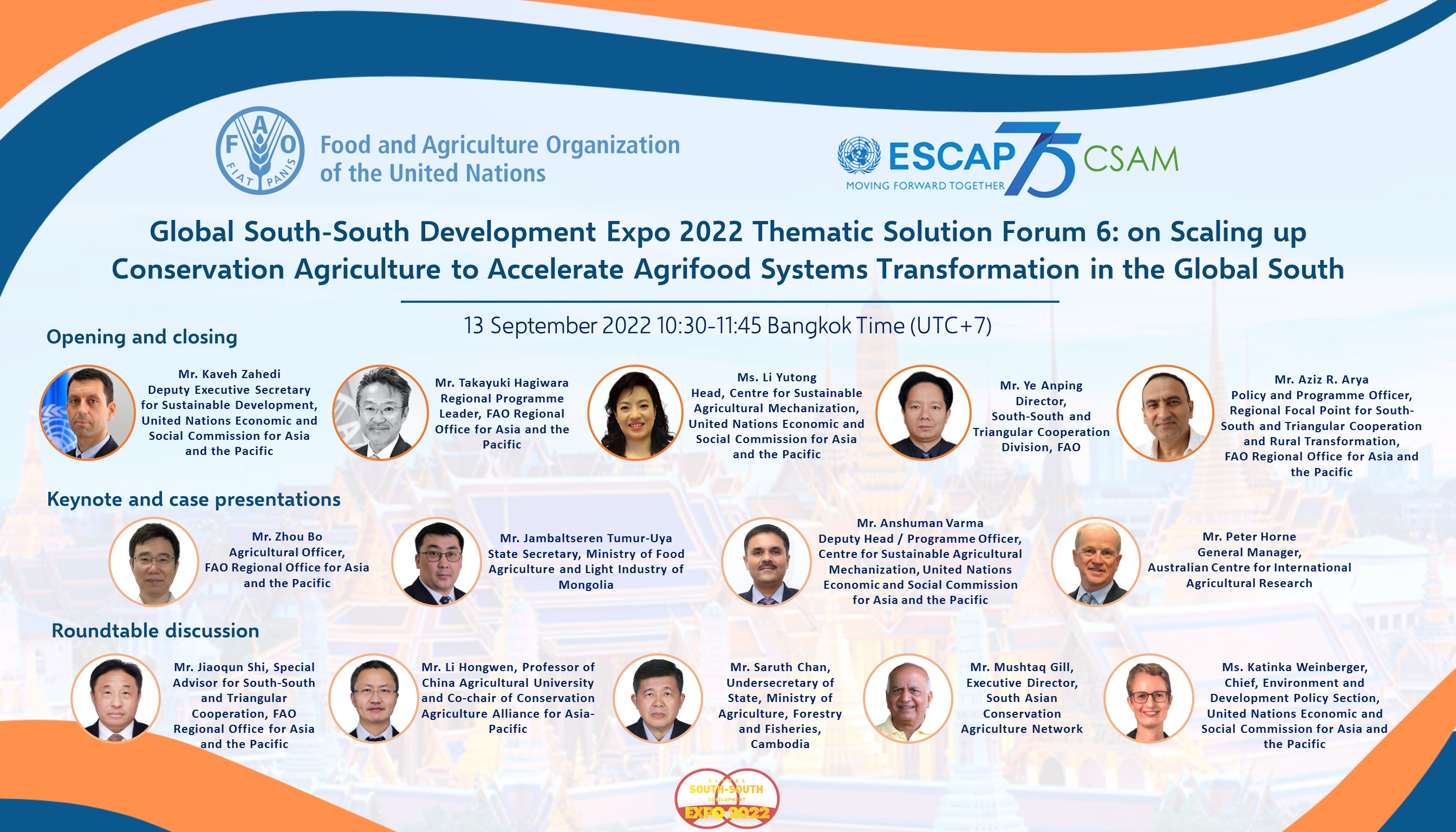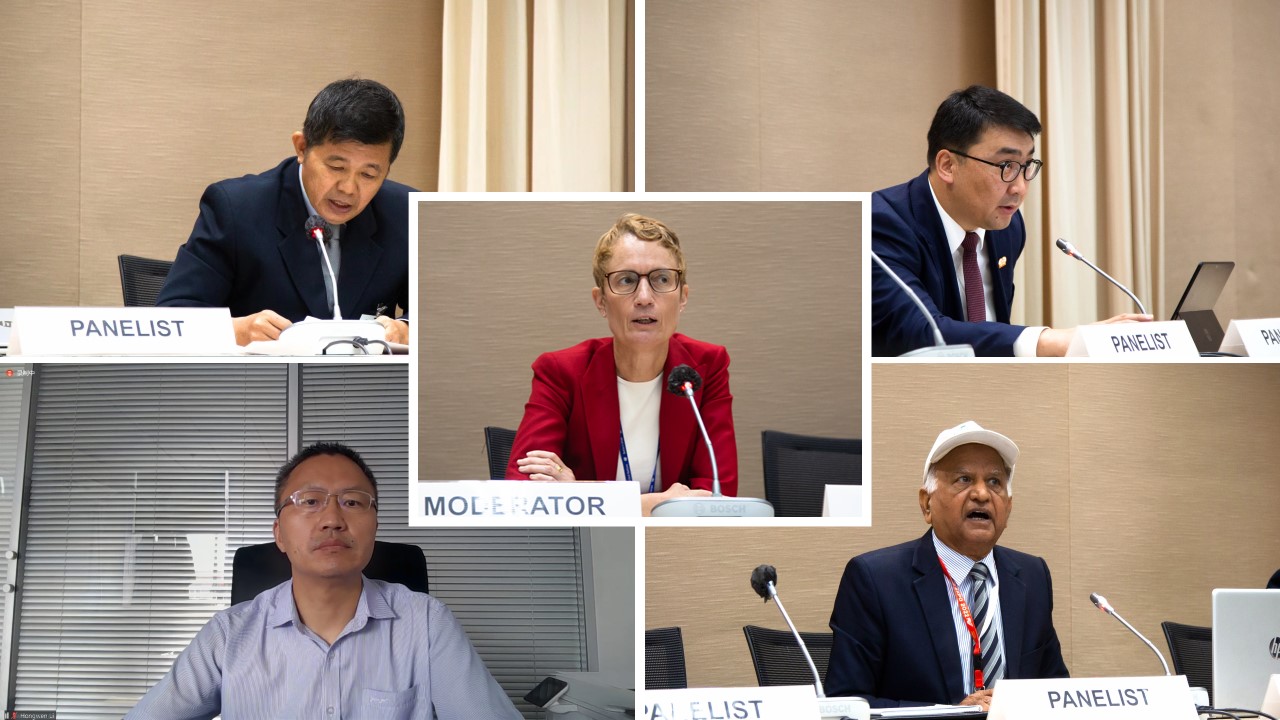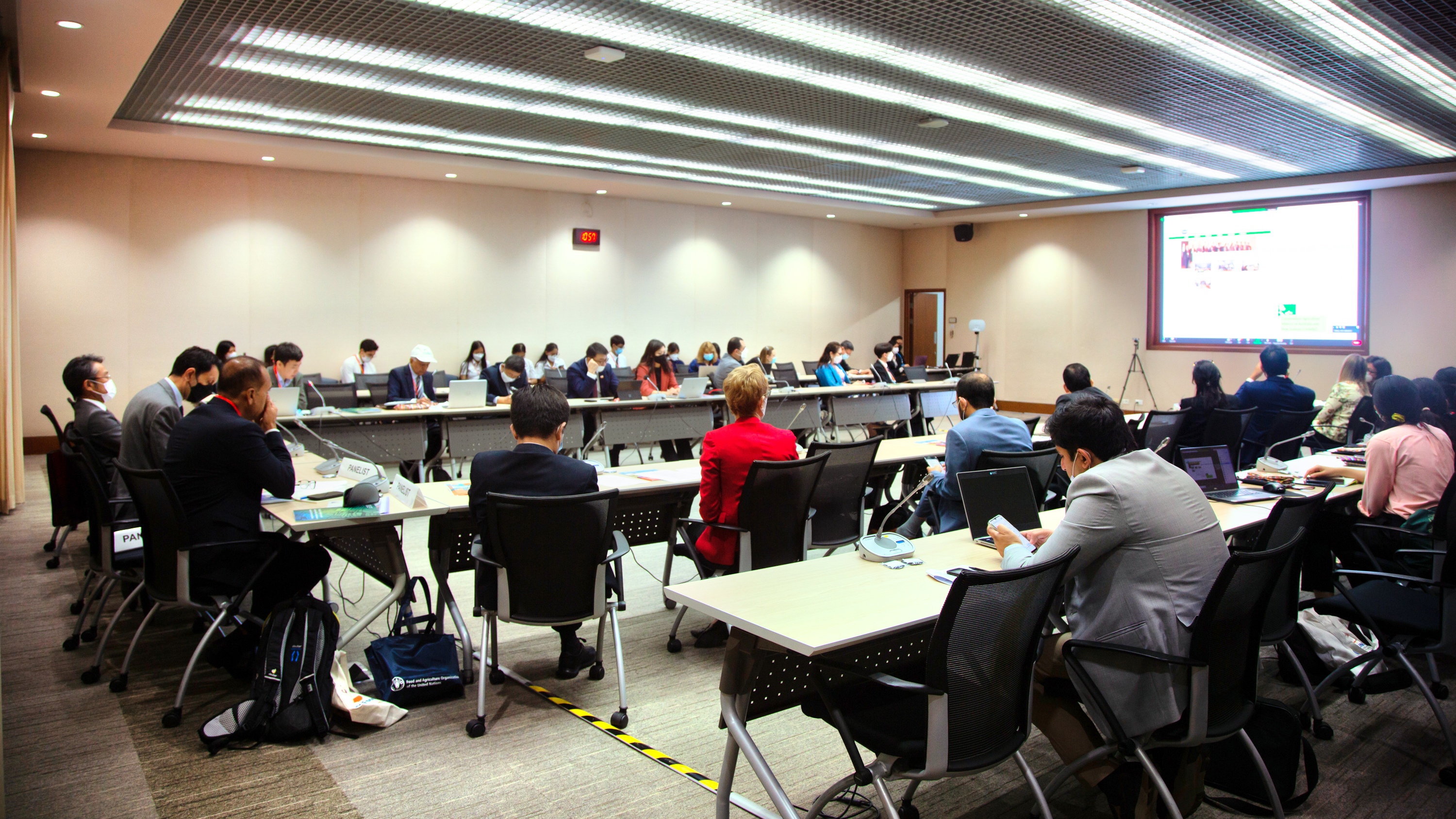Sustainable Agricultural Mechanization Vital to Scaling up Conservation Agriculture in Asia and the Pacific

Meeting Documents
Conservation Agriculture is a farming system that promotes minimum soil disturbance (i.e. minimum or no tillage), maintenance of permanent soil cover, and diversification of plant species. Its agronomic, economic and environmental benefits in terms of reducing soil erosion, increasing soil fertility and water use efficiency, improving biodiversity and natural biological processes above and below the ground surface, and sustaining crop production, were highlighted at the Opening Ceremony of the ‘Global South-South Development Expo 2022 Thematic Solution Forum 6: on Scaling up Conservation Agriculture to Accelerate Agrifood Systems Transformation in the Global South’ on 13 September 2022.
The Thematic Forum was co-organized by the Centre for Sustainable Agricultural Mechanization (CSAM) of the United Nations Economic and Social Commission for Asia and the Pacific (ESCAP), and the FAO Regional Office for Asia and the Pacific during the Global South-South Development Expo 2022 in Bangkok. Opening the event together with Mr. Takayuki Hagiwara, Regional Program Leader of the FAO Regional Office for Asia and the Pacific, Mr. Kaveh Zahedi, Deputy Executive Secretary of ESCAP, underscored that “Conservation Agriculture is clearly a valuable approach for the much needed transformation of our region’s food systems while helping to strengthen nature-positive production and enhance resilience”.

The Thematic Forum reviewed the key developments in Conservation Agriculture policies, technologies and status in the Asia-Pacific region, and enabled exchange of technical knowhow and experiences in Conservation Agriculture from Australia, Cambodia, China, Indonesia, Mongolia, and Nepal. Mr. Anshuman Varma, Deputy Head and Programme Officer of ESCAP-CSAM pointed out the indispensable role of Sustainable Agricultural Mechanization in developing and promoting Conservation Agriculture and elaborated on the Centre’s regional initiative on integrated straw management that has helped apply Conservation Agriculture technologies through pilot projects and attained encouraging outcomes including recognition as a good practice by the United Nations Office for South South Cooperation.
Keynote and case presentations from countries in the region were followed by a roundtable discussion moderated by Ms. Katinka Weinberger, Chief of the Environment and Development Policy Section of ESCAP. During the discussion, panelists recognized the role of Conservation Agriculture in the transformation towards more resilient and inclusive agrifood systems, and outlined the challenges and opportunities to adapt and upscale Conservation Agriculture including policies, institutional settings, and technical knowhow. The role of South-South and Triangular Cooperation in upscaling Conservation Agriculture in the context of the Asia-Pacific region’s small land holdings and high proportion of smallholders, limitations on manufacturing, weaknesses in policy environment, limited institutional capacities, and inadequate regional coordination was also discussed.

In her closing remarks, Ms. Yutong Li, Head of CSAM, reiterated that CSAM, as a regional institution of ESCAP, “is devoted to promoting sustainable agricultural mechanization in the region, including for Conservation Agriculture, and provides a unique platform to synthesize regional experiences and nurture regional cooperation, particularly through South-South and Triangular Cooperation”.
The Thematic Forum was attended by more than 110 participants both onsite and online from various countries and organizations in the Asia and the Pacific and beyond.

